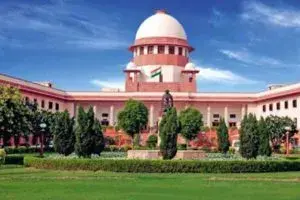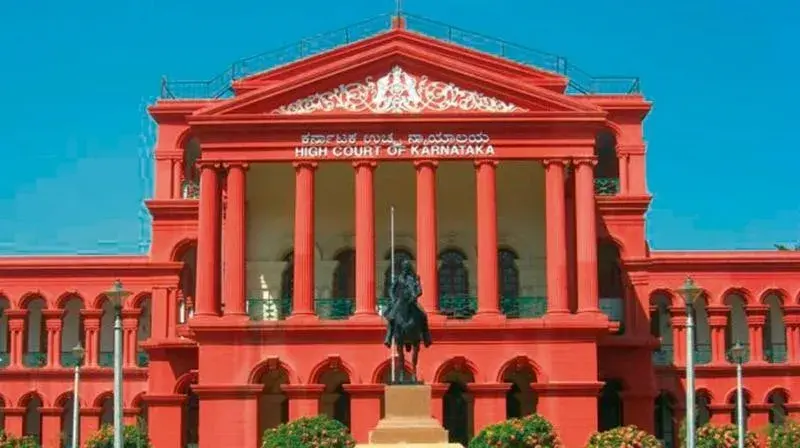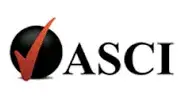India: Who is the “Owner” of a motor vehicle under Motor Vehicles Act?
India: Fashion Shows are ‘Entertainment’
India: CBDT notifies Centralised Communication Scheme

Source:www.incometaxindia.gov.in
Background:
The Central Board of Direct Taxes (hereinafter referred as ‘CBDT’) vide notification[1] dated February 22, 2018, has notified the Centralised Communication Scheme, 2018, for centralised issuance of notice.
Issue of notice:
As per the notification, the Centralised Communication Centre (hereinafter referred as ‘CCC’) established under the Income Tax Department shall issue a notice under digital signature of the Designated Authority,[2] to any person requiring him to furnish information or documents for the purpose of verification of information in his possession.
Service of notice:
As per CBDT, such a notice shall be served by the following methods:
- Delivering a copy by electronic mail; or
- Placing a copy in the registered account on the portal followed by an intimation by Short Message Service.
Response to notice:
The notification specifies that the CCC may prescribe a machine readable structured format for furnishing the information or documents by the person in response to the notice. Further, the procedure, formats and standards for furnishing the response shall be specified by the Principal Director General of Income-tax (Systems) or the Director General of Income-tax (Systems) who shall also be responsible for specifying procedures and processes for effective functioning of the CCC.
It is pertinent to note that CBDT has specified that no appearance, either personally or through authorized representative, would be required from any person
before the designated authority at the CCC in connection with any proceedings.
Ensuring compliance:
CBDT has also notified that the Centralised Communication Centre will also run a sustained campaign by way of sending electronic mails, Short Message Service, reminders, letters and outbound calls for ensuring that the taxpayer complies with the instructions of the notice.
Remarks:
This notification is a step-in furtherance of the Government’s agenda to introduce, maintain and run a paperless system of interface between the taxation authorities and taxpayers. It is expected that until this electronic communication service for notices becomes efficient and widely-used in nature, the current system of submission of information as response to notice in physical form would simultaneously continue.
___________________________
[1]Refer:
https://www.incometaxindia.gov.in/communications/notification/
notification_12_2018.pdf.
[2]The income-tax authority prescribed under sub-section (1) of Section 133C of the Act who is in charge of the Centralised Communication Centre
India: Who is the “Owner” of a motor vehicle under Motor Vehicles Act?
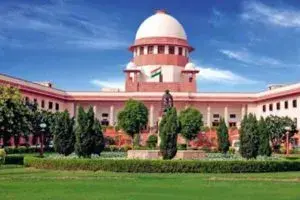
Source : www.supremecourtofindia.nic.in
Recently, the Supreme Court in its judgement in the case of Naveen Kumar v. Vijay Kumar and Ors. interpreted the expression ‘owner’ in Section 2 (30) of the Motor Vehicles Act, 1988, to be the person under whose name the motor vehicle stands registered. The Hon’ble Court further clarified that instances where the transfer of vehicle is not registered with an authority the original owner will be liable.
Brief Facts
- On May 27, 2009 at about 7:30 pm, an accident took place, in which Smt. Jai Devi and her nephew Nitin were hit by a motor vehicle, driven by Rakesh in the reverse gear. Nitin died on the spot as he was run over by the rear wheel of the car and Smt. Jai Devi received multiple injuries.
- The Motor Accident Claims Tribunal
- Two petitions were filed before the Motor Accident Claims Tribunal (hereinafter referred to as ‘the Tribunal’) by Smt. Jai Devi and by Shri Somvir and Smt. Saroj, the parents of Nitin.
- The vehicle involved in the accident, a Maruti-800 bearing Registration DL-3CC-3684, (hereinafter referred to as ‘the vehicle’) was registered in the name of Vijay Kumar (hereinafter referred to as ‘the 1st Respondent’).
- The 1st Respondent claimed that the vehicle was sold to the 2nd Respondent on July 12, 2007 and had handed over possession of the vehicle together with relevant documents.
- The 2nd Respondent stated before the Tribunal that he sold the vehicle to the 3rd Respondent on September 18, 2008.
- Further, the 3rd Respondent in turn claimed before the Tribunal to have sold the vehicle to Naveen Kumar (hereinafter referred to as ‘the Appellant’).
- The Appellant, in the course of his written statement claimed that he had sold the vehicle to Meer Singh. The succession of transfers was put forth as a defence to the claim.
- The tribunal in its decision dated October 6, 2012, granted compensation of INR 10,000/- to Smt. Jai Devi and of INR 3,75,000/- on account of the death of Nitin, to his parents. It was noted in the decision that the registration certificate of the offending vehicle continues to be in the name of the 1st Respondent. Therefore, the 1st Respondent is jointly and severally liable together with the driver of the vehicle.
- High Court of Punjab and Haryana
- The decision of the Tribunal was challenged by the 1st Respondent before the High Court of Punjab and Haryana (hereinafter referred to as ‘the High Court’).
- The appeal was allowed on January 25, 2016 by the Single Judge Bench on the ground that there was no justification for the Tribunal to pass an award against the registered owner when there was evidence that he had transferred the vehicle and the last admitted owner was the Appellant herein.
- Taking into consideration the judgements in HDFC Bank Limited v Reshma ((2015) 3 SCC 679) and Purnya Kala Devi v State of Assam ((2014) 14 SCC 142), it was held that the Tribunal ought to have passed an award only against the Appellant as the owner.
- Aggrieved by the abovementioned order ‘Naveen Kumar’ appealed before the Supreme Court by way of a Special Leave Petition.
Issues
Who is the ‘owner’ under Section 2 (30) of the Motor Vehicles Act, 1988?
Appellants Contentions
- It was stated that the High Court has proceeded on a manifestly erroneous construction of the legal position.
- Relying upon the judgements in the case of Purnya Kala Devi v State of Assam,
HDFC Bank Limited v Reshma and Section 2(30) of the Motor Vehicles Act, 1988 (hereinafter referred to as ‘the act’) it was contended that
the person in whose name a motor vehicle is registered is the owner. - Further, it was contended that the High Court was in error in foisting the liability on the appellant who is not the registered owner of the vehicle.
- The appellant also highlighted that in the case of Pushpa alias Leela v Shakuntala ((2011) 2 SCC 240) the position has been clarified by holding that where notwithstanding the sale of a vehicle, neither the transferor nor the transferee have taken any step for change in the name of owner in the certificate of registration, the person in whose name the registration stands must be deemed to continue as the owner of the vehicle for the purposes of the Act.
Respondents Contentions
- The Respondents submitted that the judgment of the Tribunal was correct and further contended that the Appellant as the person in physical possession and control of the vehicle was liable.
- While discussing Section 2 (30) of the Act the Respondent also pointed out that
the person in whose name a motor vehicle is registered is the owner.
- The view of the Court in the case of P P Mohammed v K Rajappan ((2008) 17 SCC 624) was reiterated by the Respondents. It was submitted that
the person whose name continues in the record of the registering authority as the owner of the vehicle is equally liable together with the insurer
Court’s Decision
- The Court pointed out that Section 2 (30) of the Act states that it is the person in whose name the motor vehicle stands registered would be treated as the ‘owner’. However, where a person is a minor, the guardian of the minor would be treated as the owner. Where a motor vehicle is subject to an agreement of hire purchase, lease or hypothecation, the person in possession of the vehicle under that agreement is treated as the owner.
- The Court also held that a claimant for compensation ought not to be burdened with following a trail of successive transfers, which are not registered with the registering authority. To hold otherwise would be to defeat the salutary object and purpose of the Act.
Thus, in its judgement, the Supreme Court upholding the decision of the Tribunal directed Respondent No. 1 to pay the compensation and the judgment of the High Court was set aside.
India: Fashion Shows are ‘Entertainment’
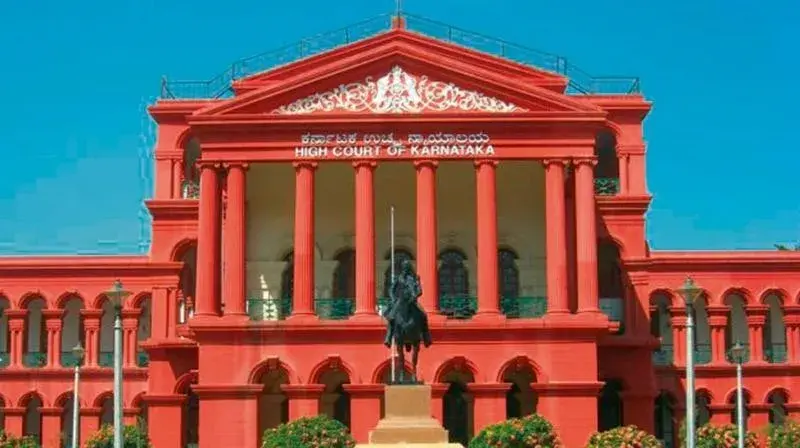
Source : www.karnatakajudiciary.kar.nic.in
Background:
M/s. Dream Merchants (hereinafter referred as ‘the Petitioner’) filed a writ petition under Articles 226 and 227 of the Constitution of India, at the High Court of Karnataka, praying to quash the impugned assessment order passed by the assessing authority, Entertainment Tax Officer (hereinafter referred as ‘the Respondent’) under Section 6-A (3) of the Karnataka Entertainment Tax Act, 1958 (hereinafter referred as ‘the Act’) wherein an entertainment tax of INR 4,75,000 was imposed for the ‘Bangalore Fashion Week’ organized by the Petitioner in 2012.
Issue:
Whether entertainment tax can be levied on events such as Fashion Week?
Petitioner’s arguments:
- The event of Fashion Week organized by the Petitioner does not fall within the definition of ‘Entertainment’ as defined in Section 2 (e) (iii) of the Act because it was an event in which the apparels were put in exhibition on mannequins and live models and limited entry was given through passes or tickets upon sponsorship by various other manufacturers or business houses.
- The exhibition did not afford any gratification, diversion or amusement.
- The event organized by the Petitioner wasn’t a fashion show and it was merely an event for display of apparels and dresses and other products of similar nature.
Respondent’s arguments:
- An effective alternate remedy is available to the Petitioner.
- The event organized by the Petitioner falls under the definition of ‘Entertainment’ under the Act.
Karnataka High Court’s decision and key takeaways:
- The event organized by the Petitioner which included lifestyle parties, after hour parties, press conferences, display of designer products through mannequins and live models etc., would fall within the definition of ‘Entertainment’ under the Act.
- The words used in the definition of ‘Entertainment’ are very wide in nature and include all pervasive entertainments so as to cover all kinds of amusement, entertainment, exhibition or performance or pageant or a game or sport whether held in indoor or outdoor and make them taxable.
- ‘Payment for admission’ as defined under Section 2 (i) (iv-a) of the Act, which includes sponsorship fees and advertisement charges, was collected by the Petitioner in the present case. Thus, the receipts in the hands of the Petitioner, the Event organizer, even though not being paid by the individuals entering in the said indoor place in the Hotel, would be liable to pay entertainment tax on such payment for admission charges including the sponsorship charges collected by it for the entertainment, amusement etc., provided by it to the visitors.
- Common parlance test in the taxing statutes, apart from dictionary meaning, needs to be looked at while dealing with such controversy.
- The overlapping of the words employed in the definition of ‘Entertainment’ is intended to cover different kinds of events and things of entertainment and they cannot be construed in separate and water tight compartments.
Effective Advertisements in India
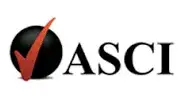
Source : www.ascionline.org
Advertisement form an integral part of the business of a company as it helps in effective communication of its products or services to the consumers. The advertisements in India are regulated and controlled by Advertising Standards Council of India (hereinafter referred to as “ASCI”). The Code for Self-Regulation formulated by ASCI requires the advertisements to adhere to fair and just legal practices. In order to ensure that the advertisements being broadcasted are effective, the following points must be taken into consideration:
- Advertisements must be based on honest representations
Advertisements should not abuse the confidence and faith of the consumers to whom they are being issued in public. All descriptions, claims and comparisons must be based upon facts capable of substantiation. Dissemination of any false or misleading information must be refrained from. - Advertisements must not be offensive to Public
Advertisements should keep into consideration the public policy. The content should not comprise of anything indecent, vulgar, especially in the depiction of women, or nothing repulsive which is likely to cause grave and widespread disturbance of peace.
-
Advertisements should
not encourage any harmful/ hazardous substancesAdvertisements should not recommend products or services which are hazardous or harmful to society or to individuals particularly minors, to a degree unacceptable to society at large. There must be non-inclusion of anything that may incite any criminal elements; discrimination on any basis of religion, race, caste, creed or race. Compliance must be made to the fact that no dangerous or illegal activities are resorted to.
- Advertisements must be fair in competitionComplying with the provisions of law, advertisements should observe fairness in competition. Comparisons with competing brands can be made only to a restricted extent. Unjustifiable use of the names or initials of other entities or using a similar layout, representations to suggest plagiarism should be prevented.
While creating and broadcasting advertisements the parameters justifying their legality must be taken into account. Incorporation of the principles as stated above would allow advertisements to popularize the product or service of the provider as well as not interfere with the principles of fair play thereby being effective and lawful advertisements.


